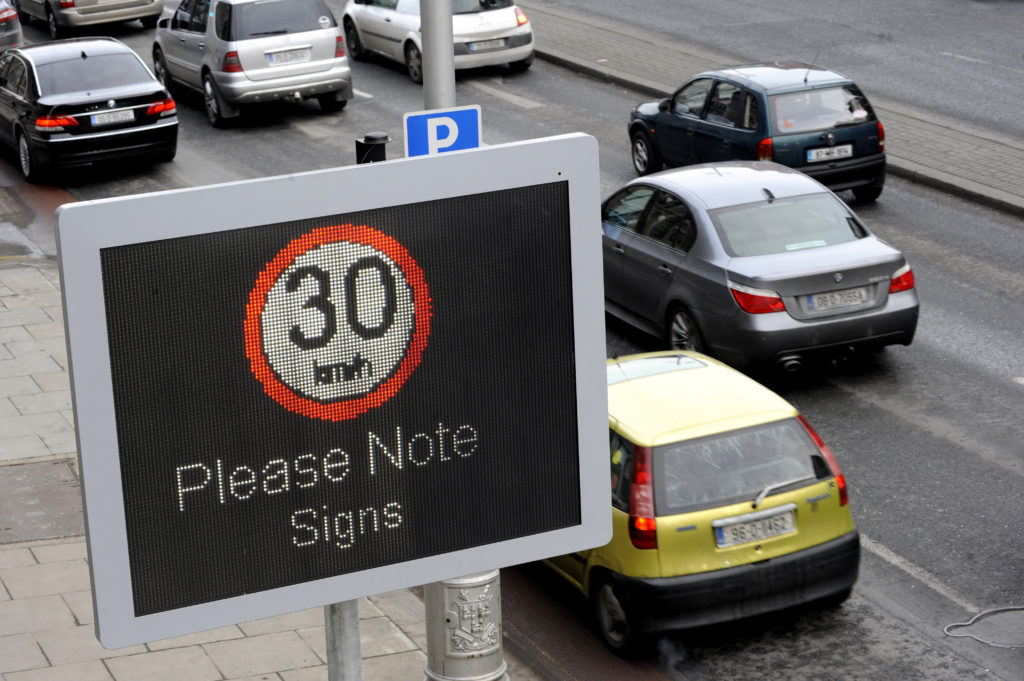A DIRECTIVE has been issued to local authorities across Ireland to review and reduce speed limits in built up areas in order to combat road deaths.
Ireland’s Minister for Transport Darragh O'Brien issued the guidance today, stating that “local authorities will, where appropriate, implement lower speed limits including the introduction of 30 km/h speed limits, such as in roads in cities and towns”.
 Reduced speed limits are set to come into effect through local authorities across Ireland
Reduced speed limits are set to come into effect through local authorities across IrelandThe move is part of the Government’s ongoing Road Safety Strategy Plan for 2025 to 2027, which was published in July this year.
Its overall objective is to reduce deaths and serious injuries on Ireland’s roads by 50 per cent by 2030.
“The Government’s Road Safety Strategy guides Ireland towards 'Vision Zero', aiming to halve fatalities and serious injuries on our roads by the end of this decade,” Minister O’Brien said.
“Making this vision a reality means we need to work together to increase protection for all, but particularly vulnerable road users.”
He added: “Having lower speed limits in built-up and urban areas will greatly improve road safety, especially for those who walk, scoot or cycle.”
The Minister further confirmed that his department has allocated funding of €20m to support the changes to speeding limits across the country, including buying new signs.
“In recent years, we have made significant investment to improve our road infrastructure, by reallocating street space for pedestrians, crossing facilities, and cycling facilities,” he explained.
“Increasing Active Travel is a critical component of Ireland’s Climate Action Plan, and lower speed limits will encourage more people to walk and cycle.
“As I announced in last week’s budget, my Department has made provision of €20 million in funding for local authorities to support these changes, including buying and installing poles and signs.”
All speed limit changes will be implemented by local authorities, through the adoption of ‘special speed limit bye-laws’, rather than by changing default limits, the Government has confirmed.
Prior to making any changes, local authorities must hold a statutory public consultation process, where local people can take part in the decision-making process.
“Members of the public and stakeholders can make representations to local authorities and elected members on any proposed speed limit changes, in line with the provisions of the Road Traffic Act 2004, as amended,” a spokesperson for the Department of Transport confirmed.

